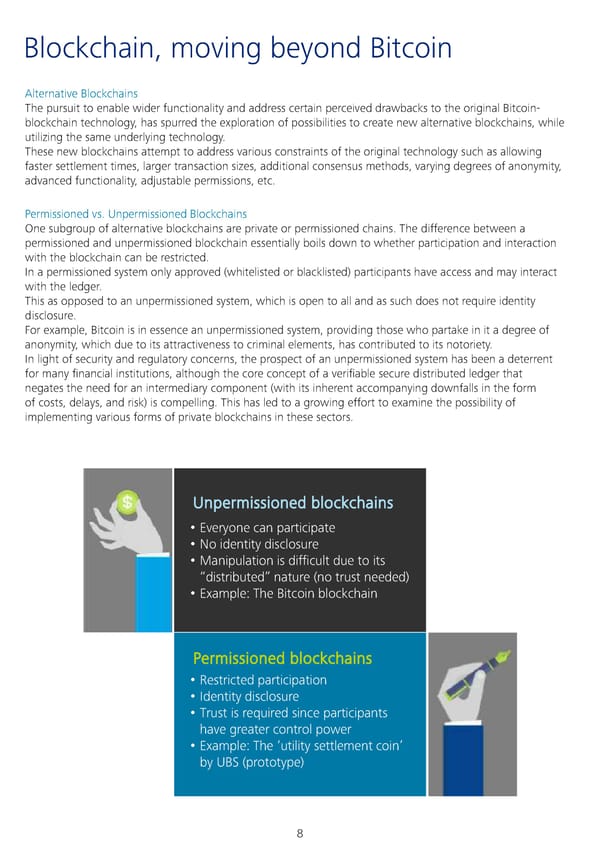Blockchain, moving beyond Bitcoin Alternative Blockchains The pursuit to enable wider functionality and address certain perceived drawbacks to the original Bitcoin- blockchain technology, has spurred the exploration of possibilities to create new alternative blockchains, while utilizing the same underlying technology. These new blockchains attempt to address various constraints of the original technology such as allowing faster settlement times, larger transaction sizes, additional consensus methods, varying degrees of anonymity, advanced functionality, adjustable permissions, etc. Permissioned vs. Unpermissioned Blockchains One subgroup of alternative blockchains are private or permissioned chains. The difference between a permissioned and unpermissioned blockchain essentially boils down to whether participation and interaction with the blockchain can be restricted. In a permissioned system only approved (whitelisted or blacklisted) participants have access and may interact with the ledger. This as opposed to an unpermissioned system, which is open to all and as such does not require identity disclosure. For example, Bitcoin is in essence an unpermissioned system, providing those who partake in it a degree of anonymity, which due to its attractiveness to criminal elements, has contributed to its notoriety. In light of security and regulatory concerns, the prospect of an unpermissioned system has been a deterrent for many financial institutions, although the core concept of a verifiable secure distributed ledger that negates the need for an intermediary component (with its inherent accompanying downfalls in the form of costs, delays, and risk) is compelling. This has led to a growing effort to examine the possibility of implementing various forms of private blockchains in these sectors. Unpermissioned blockchains • Everyone can participate • No identity disclosure • Manipulation is difficult due to its “distributed” nature (no trust needed) • Example: The Bitcoin blockchain Permissioned blockchains • Restricted participation • Identity disclosure • Trust is required since participants have greater control power • Example: The ‘utility settlement coin’ by UBS (prototype) 8
 Israel: A Hotspot for Blockchain Innovation Page 8 Page 10
Israel: A Hotspot for Blockchain Innovation Page 8 Page 10